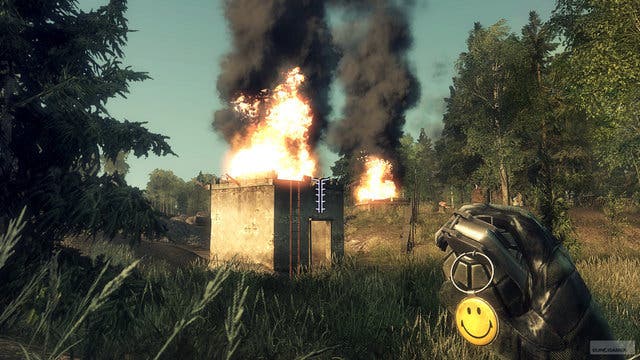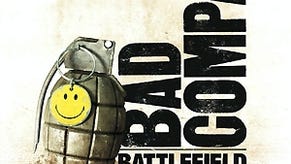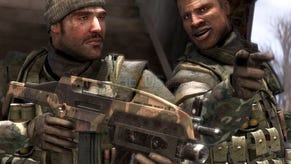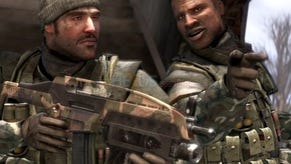Battlefield: Bad Company
Fool's gold?
Wisely, Bad Company never takes itself too seriously, either, avoiding the inevitable 'So Macho' territory of four super-serious steroid-pumped leathernecked marine jocks Hooyah-ing their way through another appallingly scripted journey into cliche-ridden tedium. Full of surprisingly warm humour, you're never left in any doubt that this lot are in the Bad Company ranks for a very good reason, though at no stage does the storyline descend into parody, either. It's a fine line that DICE successfully negotiates. It's a fool's (gold) errand where the fun comes from seeing what ludicrous scenario they can stumble upon next rather than yet another eye-rolling save-the-world trudge into sterility.
With so much experience of crafting Battlefield titles down the years, it's no surprise that everything feels exceptionally polished. Whether you're steaming along in an APC, piloting a helicopter or dodging tank shells in a speedboat, the handling is always intuitive and satisfying. Likewise, the multitude of weapons feel (and sound) absolutely spot-on. In a genre so saturated of late, it's the little things that often jar, but in practically every sense, Bad Company feels like the product of a developer inspired to make something that pushes things forward.
That said, in the process of making bold decisions, there are a few controversial choices that DICE has made which might not gain universal acclaim. The most obvious is the curious, bold decision to spawn players back into the single player game, as if you've got infinite lives. Evidently a legacy of its multiplayer roots, there's an inescapable sense that you're cheating your way through the game. Safe in the knowledge that you'll simply respawn a few paces back, you'll continually chalk off a few enemies, get blown up and run back to continue the battle - except on a few time-sensitive, mission-critical occasions when the game deems it necessary to enforce checkpoints if you fail.

Near-instant respawning is a design decision which certainly cuts down on re-loading time (and a fair amount of frustration), but it does smack of an idea based on fixing a lack of balancing than anything. The truth is, if the game didn't respawn you, it would be mercilessly difficult and almost certainly very frustrating, so it's hard not to consider it a controversial decision. Equally questionable is your ability to endlessly heal yourself by doing nothing more than injecting yourself with some sort of magic potion. Fair enough, recharging health and endless medipacks are an equally ludicrous game mechanic, but it does feel faintly bizarre to have to constantly press L1/LB followed by the right trigger/R2 in the heat of battle. Frankly, given the option of a cheating health restoring fudge, recharging health does the exact same job without constantly requiring the player to juggle equipment when you'd rather have your weapon to hand.
There's also a sense that the enemy AI isn't especially dynamic or adaptive - just irritatingly accurate. Having completed the game on the hard difficulty setting, it's especially noticeable, with enemies capable of picking you off with unerring accuracy the split second you move into their line of sight from improbable distances (interestingly, the problem is still apparent on Medium). Somewhat disappointingly, there's never any evidence of teamwork on their part, with no big chases ensuing, or surprise flanking - just a continual procession of entrenched enemy to pick off one by one. Squad AI, too, is often noticeably inert, with frequent instances of your team mates failing to take the initiative in glaringly obvious situations. Worse still, despite your squaddies being specialists in different areas, there are a number of occasions when the game still forces you to deal with situations that they would have logically dealt with. The sum total of this inherent lack of flexibility is that the further you progress, the more predictable and transparent the whole experience becomes.












